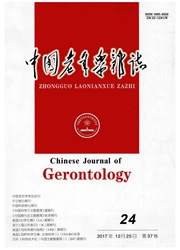

 中文摘要:
中文摘要:
目的研究强化他汀治疗对经皮冠状动脉介入治疗(PCI)后肾功能的保护作用和预防对比剂肾病(CIN)的效果,探讨其可能机制。方法 228例接受择期PCI的急性冠脉综合征(ACS)患者,随机分为标准他汀治疗组(SSG,n=115)和强化他汀治疗组(ISG,n=113)。于PCI术前7d开始,SSG组患者口服20mg/d辛伐他汀,ISG组患者则口服80mg/d辛伐他汀。于PCI术前、术后24、48h分别测定血清肌酐水平,按Cochcroft-Gault公式计算肌酐清除率。于PCI术前、术后24h分别测定血清高敏C反应蛋白(hs-CRP)、P选择素和细胞间黏附分子1(ICAM-1)水平。结果 PCI后血肌酐水平显著升高,并于术后24h达高峰,然后逐渐下降,术后48hISG组血肌酐水平显著回降(与术后24h比较P〈0.001)至术前水平(P=0.94),而SSG组血肌酐水平未显著回降(与术后24h比,P=0.11)。PCI术后24、48h,ISG组的血肌酐水平均显著低于SSG组(术后24h,P〈0.05;术后48hP〈0.001)。PCI术后,两组肌酐清除率均显著降低,最低值出现在术后24h,然后逐渐回升。术后48h,SSG组肌酐清除率显著回升(与术后24h相比,P=0.03),但仍低于术前水平(P〈0.001),而ISG组术后48h显著回升(与术后24h相比,P〈0.001)并恢复到术前水平(P=0.87),在术后24、48h,ISG组肌酐清除率的回升程度均显著高于SSG组(均P〈0.001)。虽然PCI术后血清hs-CRP、P选择素和ICAM-1水平均显著升高(均P〈0.001),但ISG组低于SSG组(均P〈0.001)。结论与标准剂量他汀治疗相比,PCI前使用强化剂量他汀治疗可进一步保护PCI术后肾脏功能,降低CIN的发生率。这种益处伴随有血清hs-CRP、P选择素和ICAM-1水平的显著降低。
 英文摘要:
英文摘要:
Objective To evaluate the protective effects of higher dose statin on renal function and the incidence of contrast induced nephropathy (CIN) and to probe its possible mechanisms.Methods Two hundreds and twenty eight patients with acute coronary syndrome (ACS) undergoing delayed percutaneous coronary intervention(PCI) were randomly divided into standard statin (SSG,n=115) and intensive statin groups (ISG,n=113).Patients in SSG group were given simvastatin 20 mg/d and patients in ISG were given simvastatin 80 mg/d for at least 7 days before PCI.The level of serum creatinine was measured at admission,24 and 48 hours after PCI.Creatinine clearance rate was calculated by Cochcroft-Gault formula.The changes of high sensitive C reaction protein (hs-CRP),intercellular cell adhesion molecule 1 (ICAM-1) and P-selectin levels before and after the procedure were also measured.Results The level of serum creatinine was significantly increased after PCI,the peak value occurred at 24 hours,and then began to decrease.At 48 hours after PCI,the creatinine level was significantly decreased (P0.001 compared with the level at 24 hours) to baseline level (P=0.94 compared with the level at baseline) in ISG,whereas in SSG the creatinine level was failed to decrease significantly (P=0.11) at 48 hours.Serum creatinine at admission was not significantly different between the two groups.But at 24 and 48 hours after PCI,it was lower in ISG than that of SSG (P0.05 at 24 hours and P0.001 at 48 hours).The creatinine clearance rate was significantly decreased after PCI,the lowest value occurred at 24 hours,and then it began to increase.In SSG,the creatinine clearance rate was increased significantly (P=0.03 compared with the level at 24 hours) at 48 hours,but still significantly lower than baseline level (P0.001 compared with the level at baseline).In ISG,the creatinine clearance rate was increased significantly (P0.001 compared with level at 24 hours) at 48 hours and recovered to the level
 同期刊论文项目
同期刊论文项目
 同项目期刊论文
同项目期刊论文
 B-type natriuretic peptide for prevention of contrast-induced nephropathy in patients with heart fai
B-type natriuretic peptide for prevention of contrast-induced nephropathy in patients with heart fai Intensive cholesterol-lowering therapy improves large artery elasticity in acute myocardial infarcti
Intensive cholesterol-lowering therapy improves large artery elasticity in acute myocardial infarcti Intensive cholesterol lowering with statin improves the outcomes of percutaneous coronary interventi
Intensive cholesterol lowering with statin improves the outcomes of percutaneous coronary interventi Equilibrium radionuclide angiography for evaluating the effect of percutaneous coronary intervention
Equilibrium radionuclide angiography for evaluating the effect of percutaneous coronary intervention 期刊信息
期刊信息
